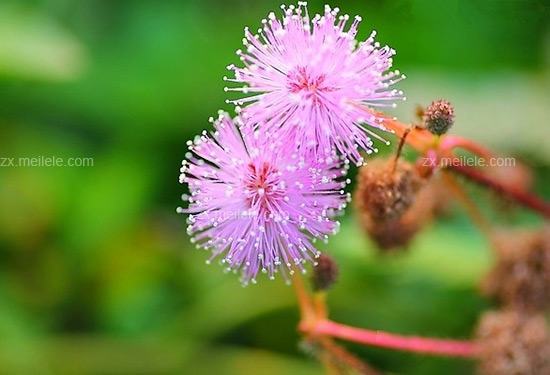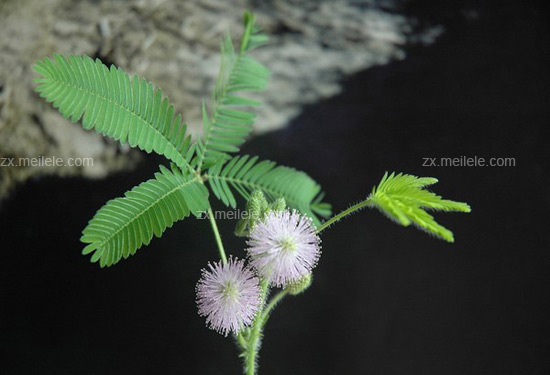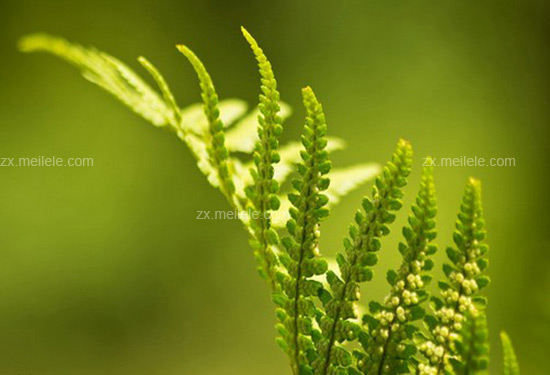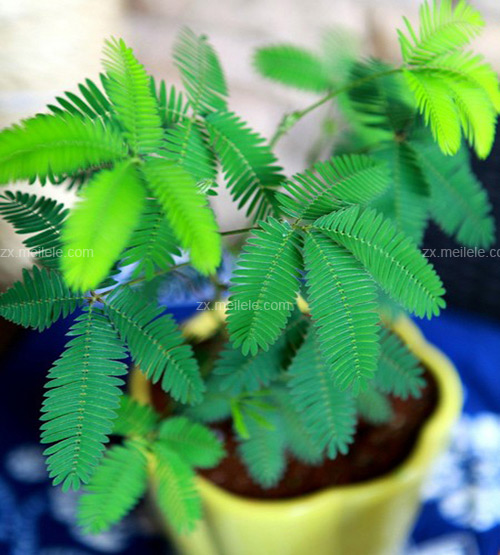Why is the mimosa shy? The secret of mimosa was revealed.
When the alternate leaves of a row of compound leaves of mimosa are hit by Rain Water and touched by animals, they will start from the tip, and the edges of the leaves will contract to the middle, just like dominoes, causing a series of chain reactions near the leaves. finally, until all the leaves at the root are closed and contracted. This special and magical physiological phenomenon has aroused people's endless interest and conjecture, so what is the shyness mechanism behind the mimosa?
[recommended reading] smooth sailing breeding method bedroom plants fengshui home fengshui plants?
Why is the mimosa shy? The secret of mimosa was revealed.
-

[plant archives]
-
English name: mimosa
Scientific name: Mimosa pudica
Aliases: laughing grass, inductive grass, drinking grass, mimosa, ugly grass, mimosa and husband and wife grass
Family: Leguminosae Fabaceae
Genus: Mimosa
Distribution: shy grasslands are found in tropical America and have now spread to many parts of the world. Because of its tenacious growth, it is treated as a weed in many countries.
Morphological characteristics: perennial herbs. The flowers are pink and shaped like fluffy balls. Pods bear fruit after flowering, and the fruit is flat and round. The leaves are feathery, compound leaves alternate, palmately arranged, when touched by the outside world, the petiole is drooping and the leaflets are closed.

Why is the mimosa shy?
-
We all know that plants do not have a nervous system, which is an important feature that distinguishes them from animals. But the stress response of mimosa behaves more like animal behavior. Why? This should start from the physiological composition of mimosa.
In the position of the petiole and the base of the leaf of mimosa, there is an inflated part, which is called the leaf pillow. And the leaf pillow is the core reason for the shyness of the mimosa. There is a vascular bundle in the middle of the leaf pillow, surrounded by parenchyma. When the leaf pillow which is most sensitive to stimulation is touched, it will cause the cell fluid of the parenchyma cells in the upper half of the leaf occipital to be discharged, resulting in an imbalance of swelling pressure between the upper and lower halves, resulting in the closure and sagging of the leaves.
The stress behavior of mimosa takes only 0.08 seconds before and after the occurrence, that is to say, the conduction velocity is as high as 10cm/s, which can be said to be very fast. It takes about 5-10 minutes to restore the original state.
The reason why mimosa is shy is closely related to its native environment. The shy prairie comes from tropical South America, where the climate is bad and there are often high winds and torrential rains. In order to protect itself, when the first drop of Rain Water falls on the mimosa leaf, it will close the leaf promptly and effectively and hang its petiole to avoid the damage of the storm, which is the self-adjustment of the biological world.


Conclusion: now, let's look back at the three questions raised at the beginning of this article. I think everyone can answer them. It is worth noting that although mimosa has wonderful biological characteristics and hairy lovely mimosa flowers, it is toxic and not suitable for indoor breeding, especially in families with children.
[
Related
- Wuhan Hospital Iron Tree Blooming Result Was Instantly Frightened by the Gardener Master
- Which variety of camellia is the most fragrant and best? Which one do you like best?
- What is the small blue coat, the breeding methods and matters needing attention of the succulent plant
- Dormancy time and maintenance management of succulent plants during dormancy
- Minas succulent how to raise, Minas succulent plant pictures
- What are the varieties of winter succulent plants
- How to raise succulent plants in twelve rolls? let's take a look at some experience of breeding twelve rolls.
- Attention should be paid to water control for succulent plants during dormant period (winter and summer)
- Watering experience of twelve rolls of succulent plants
- Techniques for fertilizing succulent plants. An article will let you know how to fertilize succulent plants.



